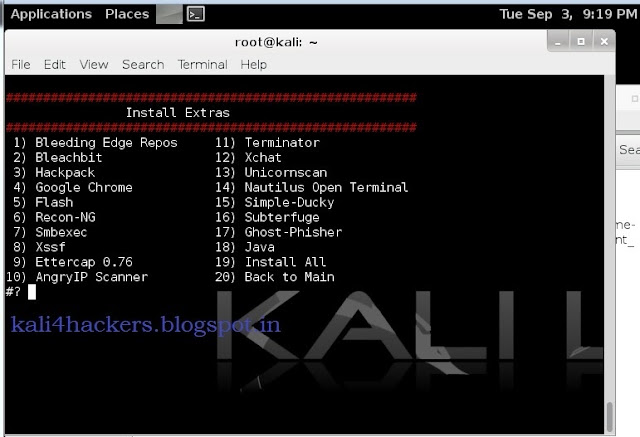LazyKali is an awesome script written in bash shell. It can automate the whole update and install new tools in your hack repository. As the name suggests, you can get all the updates on Kali Linux and your repositories in one place by running this script. Please read the description of the project here to know what tools are there that are going to be added when you run the script. Download lazykali.sh.
* Warning: Disable firewall or Internet Security application if your Kali Linux is installed in a virtual machine.
To install the script on Kali Linux, run
- rootkali:~#./lazykali.sh on root terminal window. (If you get a message Permission Denied, then first type rootkali:~#chmod +x lazykali.sh and then rootkali:~#./lazykali.sh).
- if the script is not installed it may prompt you to install. Type Y to install the script.
- Once the script is installed, it will check the version. If the version is old, allow it to update by typing Y.
- Once execute, you will get a command line interface. Check the below screenshot of the tool.
- If Kali Linux is not updated, then type 1 to update Kali Linux. Once it is updated, type 6 to check available tools that LazyKali offers you.

- Type 3 to install Hackpack. It will prompt you to install Hackpack. Type Y to install Hackpack.
- Now click on Applications on the top left corner of Kali Desktop and you will find Hackpack tab.
The advantage of LaziKali is that you can modified the code and add some extra tools to this script to save time and effort. Please find the source code: https://code.google.com/p/lazykali/source/browse/lazykali.sh





Comments
Post a Comment
plz add ur comment here